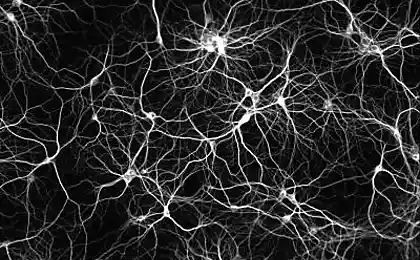1220
Reason amnesia - in excess of disordered memories

People with amnesia memories are not ordered and interfere with each other. As a result, the brain is not able to lay down the details of a variety of single image and as a result can not understand what he already knew, and chti & gt; on - no.
As paradoxical as it may sound, but amnesia is associated with an excess of memories rather than their absence, disappearance. This conclusion was made by scientists from the University of Toronto (Canada), published in Neuron article with the results of their experiments.
Amnesia is often accompanied by disturbances in the perirhinal cortex - a small area of the brain, located near the ears. Researchers noticed that it is also a result of damage to the difficulties in recognizing objects. During the experiment, the patients showed a series of images of amnesia, which were depicted objects: they were either identical or slightly different. This was the task: to say whether the next item is different from the previous one.
Initially, the patients performed worse than healthy test does not, but at some point in their heads as if something breaks. After going through many options for an explanation, researchers have, as already mentioned, to a paradoxical conclusion: patients with amnesia prevented unstructured heap of memories. Man seen more and more pictures, and more and more small parts, which they differed, accumulated in his head. In the end, in case something like a blood clot, and the brain is no longer able to determine, he saw it before or not.
Researchers emphasize: the problem is not in the object as a whole, and in the small details (in case they were shown pictures of slanting lines, a variant of the color gradient, and so on. D.). When researchers reduced the details, that is removed some small signs, the ability to distinguish between objects returned to the participants of the experiment.
The images in the memory are composed of many parts, each of which has its own "address", attributing it to a particular subject. When amnesia such details as if detached from its facilities. We can say that in this case the memory is present, but in a dismantled for parts. Similarly, we can explain and difficulty recognizing objects: their parts, accumulating, do not form a unity. In fact, here there is no extinction of memories, and the loss of their relationship and order.
It should be clarified that this is only one of the mechanisms of memory loss. Amnesia can be caused by various reasons, not just damage perirhinal area, not to mention the fact that in some cases, loss of memory is only a symptom of some serious illness.























